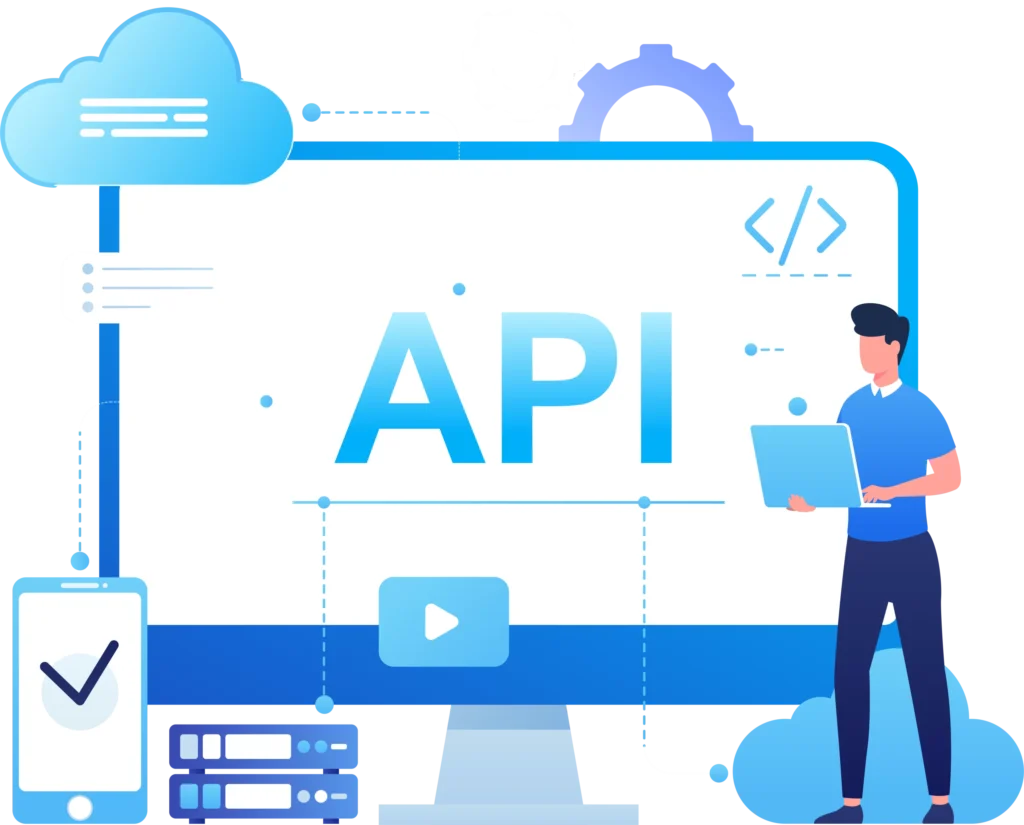

We have extensive experience working with different types of APIs, such as RESTful APIs, SOAP APIs, GraphQL APIs, and more, across various domains and technologies.


Our API testing services ensure smooth integration between different software components, systems, and third-party services, enabling seamless data exchange and collaboration
Thorough testing of APIs helps identify and fix potential issues, reducing the risk of unexpected failures and enhancing the overall reliability and stability of your software applications.
Our testing validates the accuracy and consistency of data exchanged through APIs, ensuring that the information shared between systems is reliable and error-free.
Welcome to our API Testing Services! We specialize in providing comprehensive and reliable API testing solutions to ensure the seamless integration and functionality of your APIs. Our expert testing team employs industry best practices and cutting-edge tools to identify and resolve potential issues, ensuring the reliability and performance of your APIs.











API testing validates the functional behavior of APIs, ensuring that they perform as expected and produce the correct output for various inputs. It verifies that the API endpoints, methods, and parameters are functioning correctly.
API testing plays a crucial role in integration testing by verifying the seamless integration between different software components and systems.Â
Assessing the performance and scalability of APIs under different load conditions. It measures response times, throughput, and resource utilization to identify bottlenecks, optimize performance, and ensure APIs can handle expected user traffic efficiently.
With 19+ years of Excellence, We Offer A Wide Range Of Customized High-Quality Research-Based Talent Consulting Services.
API testing is crucial for web and mobile applications that rely on APIs to communicate and exchange data with backend systems or third-party services. It ensures the seamless integration and functionality of APIs within the application ecosystem.
In a microservices architecture, where applications are built as a collection of loosely coupled services, API testing ensures that the services communicate effectively through APIs. It validates the interactions between different microservices to maintain the overall system’s integrity and functionality.
“Humac Inc has been our valued partner and consistently
delivers with excellence.”

VP-Operations












